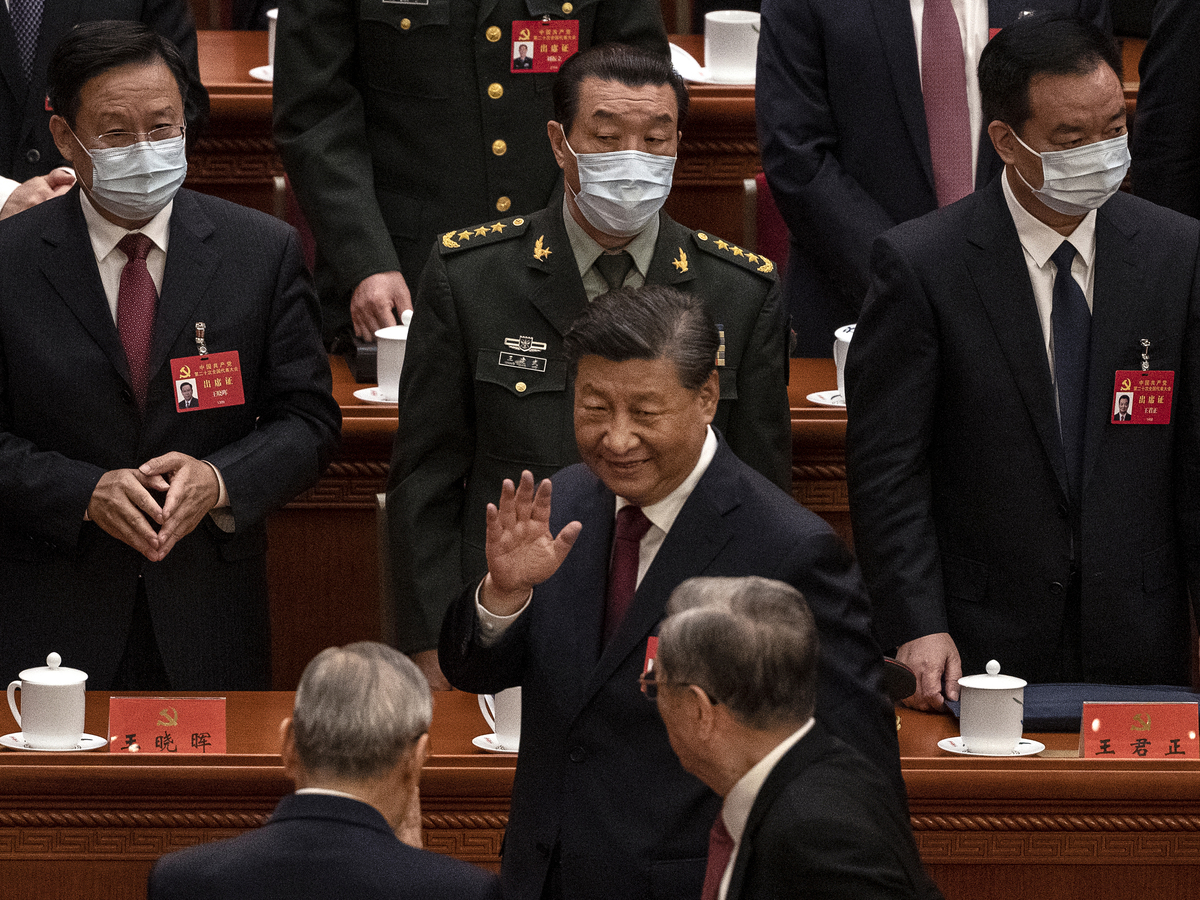
Xi Jinping has become China's most powerful leader since Mao Zedong. This week, at the 20th National Congress of the Communist Party of China, he is expected to be handed a historic third term. Kevin Frayer/Getty Images hide caption

Xi Jinping has become China's most powerful leader since Mao Zedong. This week, at the 20th National Congress of the Communist Party of China, he is expected to be handed a historic third term.
Kevin Frayer/Getty ImagesThis week, China's Communist Party Congress is expected to approve a historic third term in office for the country's leader, Xi Jinping.
Xi has already been in power for a decade, a period marked by growing authoritarianism in China. Many experts believe he could emerge a more emboldened leader in his new term.
Ailsa Chang speaks with Yun Sun, director of the China Program at the Stimson Center, about the global implications of a third term for Xi Jinping and how this signals a new era for China. And NPR's Emily Feng reports on how little we know about the way China's Communist Party Congress makes its decisions.
Email us at
This episode was produced by Elena Burnett and Erika Ryan. It was edited by William Troop, Martin Patience and Sarah Handel. Our executive producer is Sami Yenigun.

 Live Radio
Live Radio